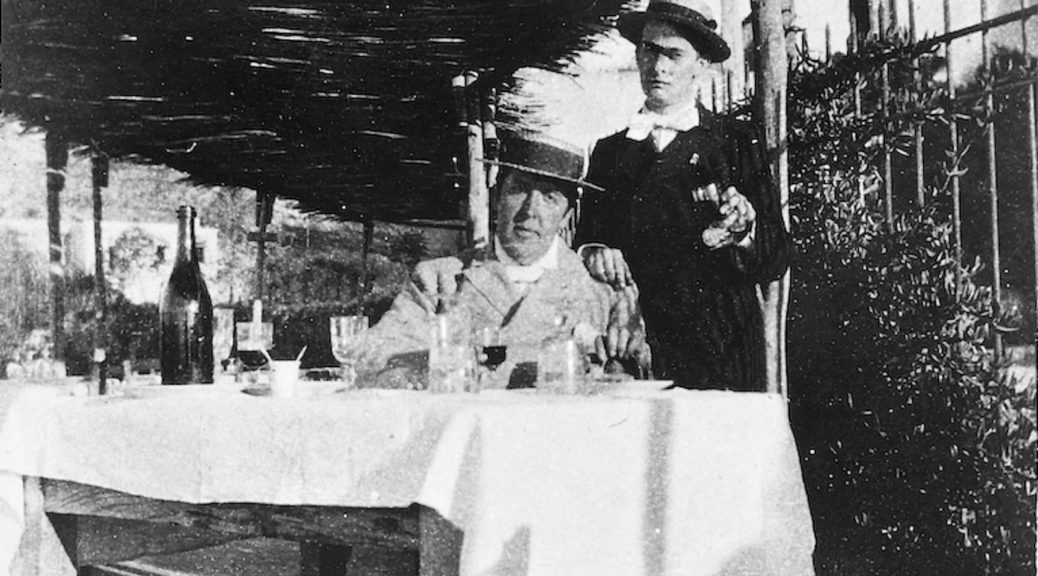OSCAR WILDE, Irish writer, wit and raconteur died (b. 1854); Prison was unkind to Wilde’s health and after he was released on May 19, 1897 he spent his last three years penniless, in self-imposed exile from society and artistic circles. He went under the assumed name of Sebastian Melmoth, after the famously “penetrated” Saint Sebastian and the devilish central character of Wilde’s great-uncle Charles Robert Maturin’s gothic novel Melmoth the Wanderer.
Nevertheless, Wilde lost no time in returning to his previous pleasures. According to Douglas, Ross “dragged [him] back to homosexual practices” during the summer of 1897, which they spent together in Berneval.
After his release, he also wrote the famous poem The Ballad of Readying Gaol. Wilde spent his last years in the Hôtel d’Alsace, now known as L’Hôtel, in Paris, where he was notorious and uninhibited about enjoying the pleasures he had been denied in England. Again according to Douglas, “he was hand in glove with all the little boys on the Boulevard. He never attempted to conceal it.” In a letter to Ross, Wilde laments, “Today I bade good-bye, with tears and one kiss, to the beautiful Greek boy. . . he is the nicest boy you ever introduced to me.” Just a month before his death he is quoted as saying, “My wallpaper and I are fighting a duel to the death. One or other of us has got to go.”
His moods fluctuated; Max Beerbohm relates how, a few days before Wilde’s death, their mutual friend Reginald ‘Reggie’ Turner had found Wilde very depressed after a nightmare. “I dreamt that I had died, and was supping with the dead!” “I am sure,” Turner replied, “that you must have been the life and soul of the party.” Reggie Turner was one of the very few of the old circle who remained with Wilde right to the end, and was at his bedside when he died. On his deathbed he was received into the Roman Catholic church for some odd reason. Perhaps he really had lost his mind. Wilde died of cerebral meningitis on November 30, 1900.
Wilde was buried in the Cimitiere de Bagneaux outside Paris but was later moved to Père Lachaise in Paris. His tomb in Père Lachaise was designed by sculptor Sir Jacob Epstein, at the request of Robert Ross, who also asked for a small compartment to be made for his own ashes. Ross’s ashes were transferred to the tomb in 1950. The numerous spots on it are lipstick traces from admirers.
The modernist angel depicted as a relief on the tomb was originally complete with male genitals. They were broken off as obscene and kept as a paperweight by a succession of Père Lachaise cemetery keepers. Their current whereabouts are unknown. In the summer of 2000, intermedia artist Leon Johnson performed a forty minute ceremony entitled Re-membering Wilde in which a commissioned silver prosthesis was installed to replace the vandalized genitals.
